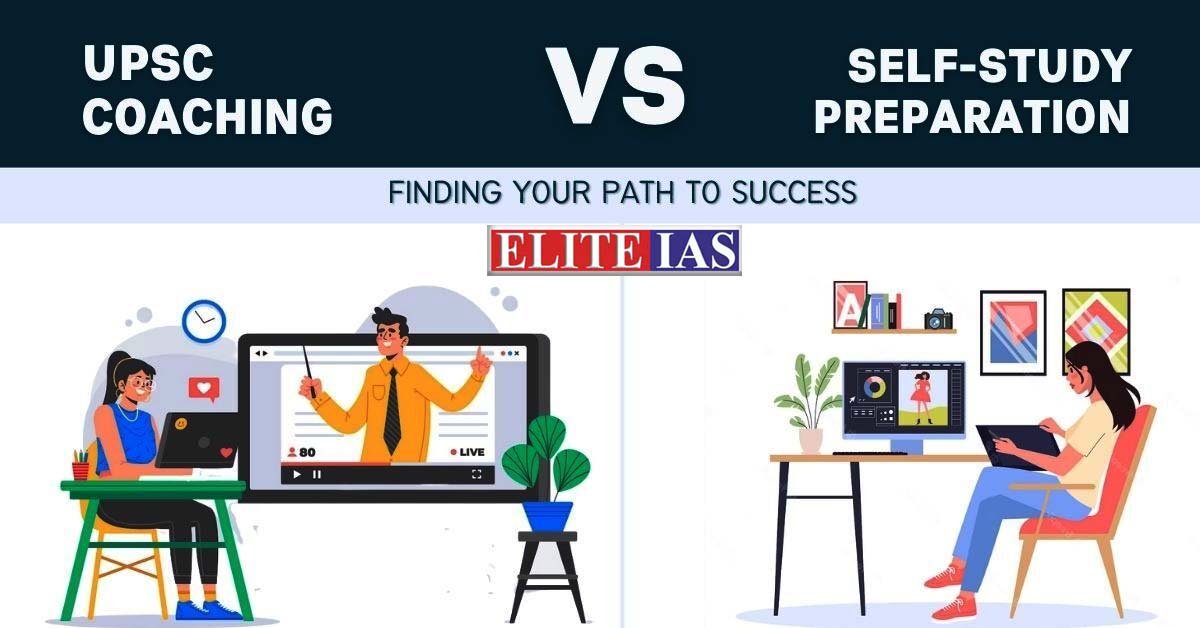
The Union Public Service Commission (UPSC) examination is widely regarded as one of the toughest competitive exams in India. It serves as a gateway to prestigious positions in the civil services, including the Indian Administrative Service (IAS), Indian Police Service (IPS), and Indian Foreign Service (IFS), among others. With the increasing competitiveness of the examination, aspiring candidates often find themselves grappling with the decision of whether to opt for coaching or rely on self-study. This article delves into the pros and cons of coaching and self-study for UPSC preparation, shedding light on the factors to consider when making this crucial choice.
Section 1: Understanding Coaching for UPSC Preparation
1.1 Definition and Overview
Coaching institutes for UPSC preparation have proliferated in recent years, attracting thousands of aspirants seeking professional guidance and support. These institutes offer structured courses, study materials, expert faculty, mock tests, and personalized attention to help students navigate the vast UPSC syllabus effectively.
1.2 Pros of Coaching
a. Expert Guidance: Coaching institutes provide access to experienced faculty members who possess a deep understanding of the UPSC examination pattern, syllabus, and marking scheme. They offer expert guidance, clarify doubts, and provide valuable insights into exam strategies.
b. Structured Approach: Coaching institutes offer a well-organized curriculum that covers all relevant subjects, ensuring comprehensive preparation. They provide a study plan, timetable, and systematic coverage of topics, which can be particularly helpful for candidates who find it challenging to structure their self-study.
c. Peer Learning: Joining a coaching institute exposes aspirants to a community of like-minded individuals with similar goals. Interacting with peers allows for the exchange of ideas, healthy competition, and mutual support, fostering a conducive learning environment.
d. Regular Assessments: Coaching institutes conduct regular tests and assessments to evaluate the progress of students. These mock tests simulate the actual examination environment and help candidates gauge their performance, identify weaknesses, and make necessary improvements.
1.3 Cons of Coaching
a. High Cost: Coaching institutes often come with a hefty price tag, making them financially inaccessible for some aspirants. The cost includes not only the course fees but also additional expenses such as accommodation, transport, and study materials, putting a strain on the financial resources of many candidates.
b. Limited Flexibility: Coaching institutes have fixed schedules and timetables, leaving little room for flexibility. Candidates may have to adhere strictly to the institute’s routine, which can be challenging for individuals with other commitments, such as part-time jobs or family responsibilities.
c. Cookie-Cutter Approach: Coaching institutes follow a standardized approach that may not suit the learning style and pace of every aspirant. The same study material and teaching methods are employed for all students, disregarding individual strengths, weaknesses, and preferences.
Section 2: Exploring Self-Study for UPSC Preparation
2.1 Definition and Overview
Self-study refers to the process of independent learning undertaken by aspirants without the aid of coaching institutes. It involves managing one’s study schedule, selecting study materials, and devising a personalized strategy to cover the vast UPSC syllabus.
2.2 Pros of Self-Study
a. Cost-Effectiveness: Self-study eliminates the need for expensive coaching institutes, making it a more affordable option for candidates with limited financial resources. Resources such as books, online materials, and previous years’ question papers are readily available at a fraction of the cost.
b. Flexibility and Autonomy: Self-study offers candidates the freedom to design their study schedule according to their convenience. It allows for flexible timings, enabling individuals to balance other commitments effectively. Aspirants can also adapt their study


